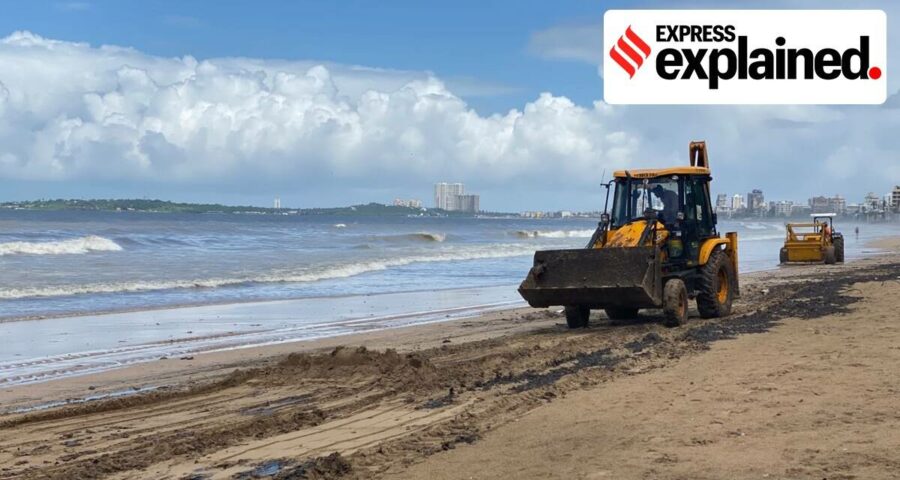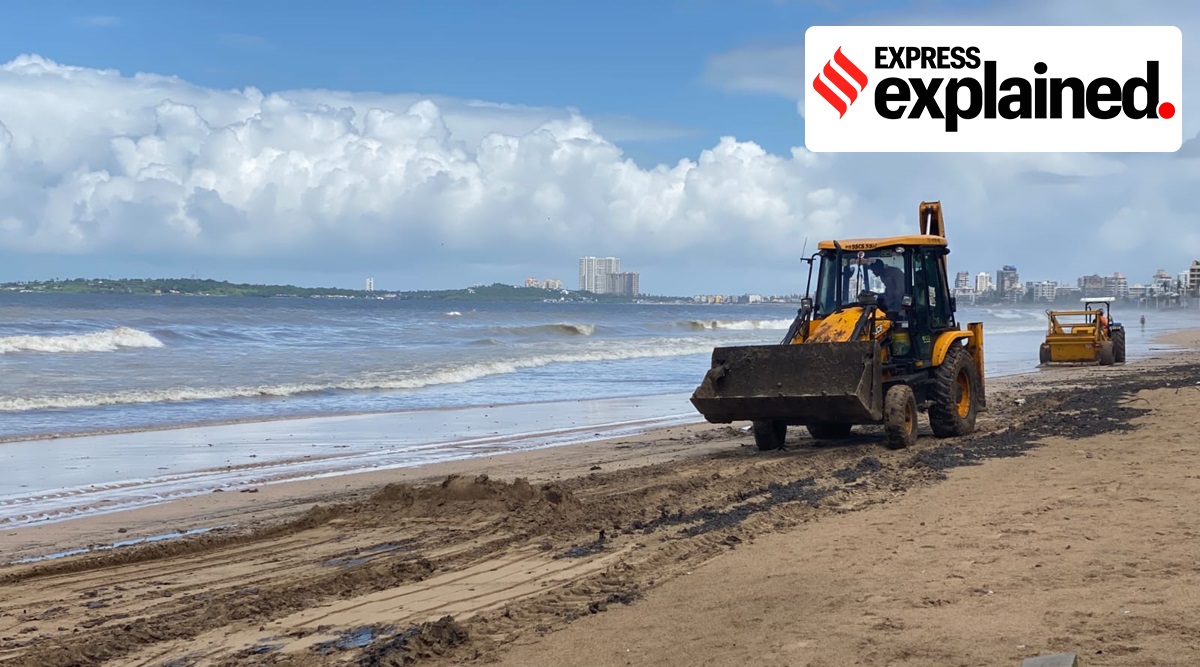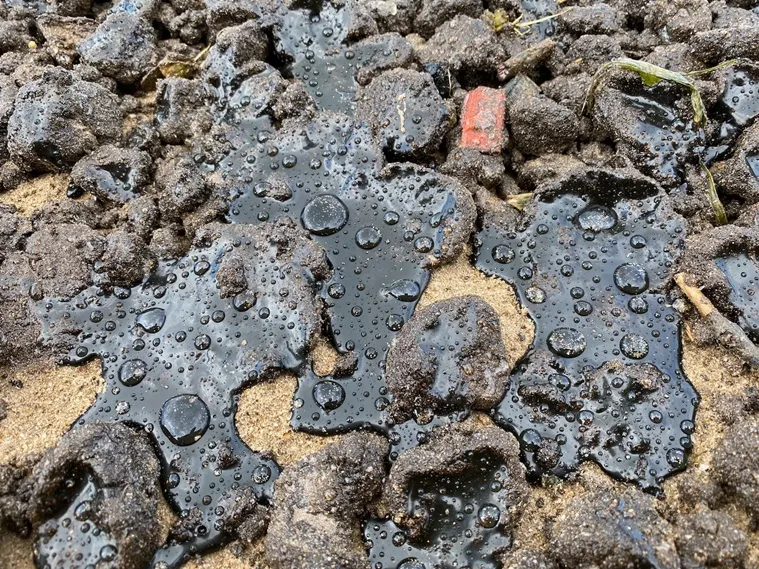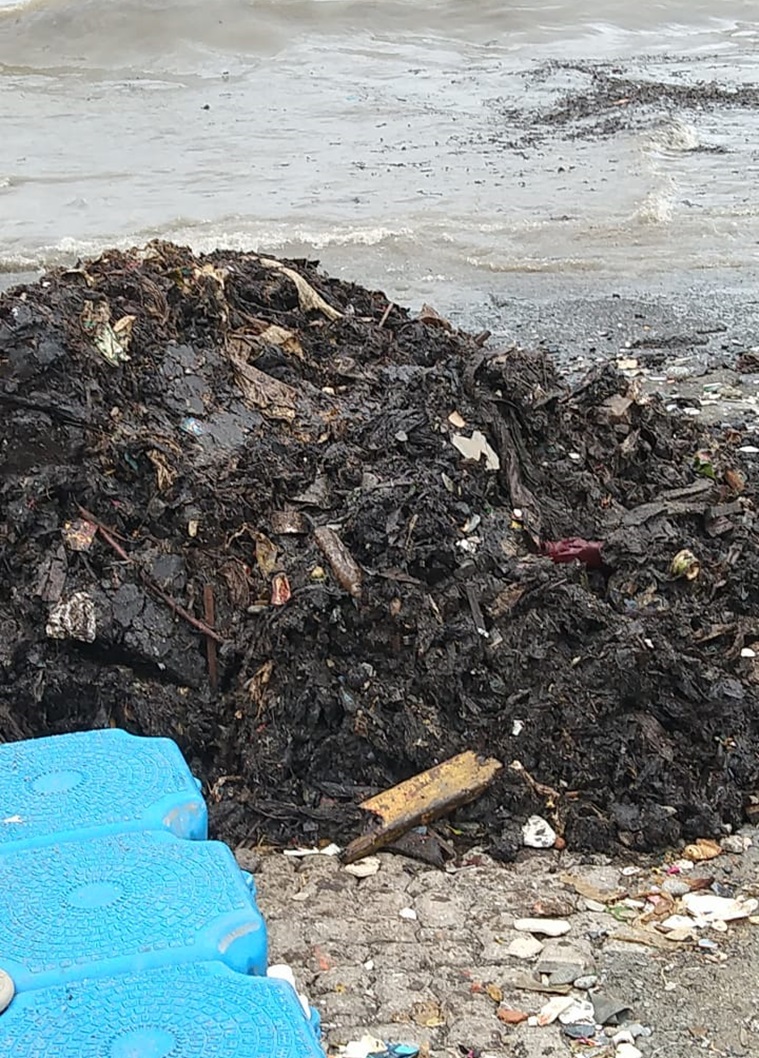In this month alone, the Brihanmumbai Municipal Corporation (BMC) has removed over 20,000 kg of tarballs from Juhu and Versova beaches in Mumbai.
On Tuesday, Cuffe Parade shoreline, a tony business district in South Mumbai, saw black oil-emanating balls lying on the shore. On September 4, Juhu beach, one of the popular beaches, was covered in sticky tarballs that gave off a foul fuel smell. In this month alone, the Brihanmumbai Municipal Corporation (BMC) has removed over 20,000 kg of tarballs from Juhu and Versova beaches.
Earlier this month, several popular beaches in Goa, including those popular with tourists like Anjuna, were covered with the black sticky carpet.
What are tarballs?
Tarballs are dark-coloured, sticky balls of oil that form when crude oil floats on the ocean surface. Tarballs are formed by weathering of crude oil in marine environments. They are transported from the open sea to the shores by sea currents and waves, according to a research paper titled, Diversity of bacteria and fungi associated with tarballs: Recent developments and prospects by Laxman Shinde, Varsha & Suneel, V & Shenoy, Belle Damodara (2017), National Institute of Oceanography (NIO).
Some of the balls are as big as a basketball while others are smaller globules. Tarballs are usually coin-sized and are found strewn on the beaches. However, over the years, they have become as big as basketballs and can weigh as much as 6-7 kgs. BMC, which has cleared the beaches of the tarballs, said the tarballs stick to the cleaning machinery and are very difficult to wash off.
How are tarballs formed?
The NIO study states that “wind and waves tear the oil slick into smaller patches that are scattered over a much wider area. Various physical, chemical and biological processes (weathering) change the appearance of the oil”.
Why are tarballs found on the beaches during the monsoon?
It is suspected that the oil comes from the large cargo ships in the deep sea and gets pushed to the shore as tarballs during monsoon due to wind speed and direction. “All the oil spilt in the Arabian sea eventually gets deposited on the western coast in the form of tarballs in the monsoon season when wind speed and circulation pattern favour transportation of these tarballs,” the NIO study said.
The BMC appoints a clean-up contractor at various beaches to remove the tarballs post-high tide. The Maharashtra Pollution Control Board (MPCB) has, however, said that most of the oil was coming from large cargo vessels, where they have no jurisdiction. It has also said that they do not have a solution or control over the management of ships/cargo.
Alerted about a large number of tarballs, the MPCB on September 4 collected samples of the deposits from the Juhu beach. It will be tested for pollutants to map its source. The MPCB in the past has collected samples from city beaches. However, the tests have been inconclusive.
Newsletter | Click to get the day’s best explainers in your inbox
Source: Read Full Article




